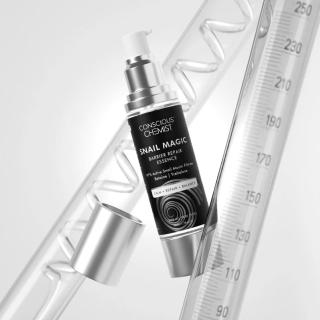Slathering a thick, greasy, and heavy SPF on your bumpy, acne-prone skin might make you uncomfortable. However, the persistent advice on sunscreen application that seemed non-essential may be valuable. So, does sunscreen help acne? Let's find out!

In our desire to achieve porcelain skin, we are often drawn to countless skincare products such as facewash, serums, exfoliators, and toners. We pay little to no attention to sunscreen in our acne skincare routine . Why? That's because many believe sunscreen on acne-prone skin will worsen the situation. But it's quite the opposite. A skin-friendly and suitable sunscreen for acne-prone skin can enhance your skin health, protect against harmful UV rays, lower the number of breakouts and fade scars and blemishes.
According to dermatologists, every skin type needs a sunblock, even those with oily and acne-sensitive skin. Contrary to the belief, sunscreen for sensitive skin controls oil production, reduces inflammation and locks moisture, allowing your skin to feel dewy and refreshed during the sticky, hot summer. Let's explore this in more detail.
Understanding the Root Cause of Acne
In simple terms, acne develops on the skin's surface when the pores get clogged with excess oil, germs, dirt, dead skin cells, or bacteria. This results in skin irritation, inflammation, and, eventually, breakouts. Additionally, lack of sleep, genetics, excess sebum production (the skin's natural oil), hormonal imbalance, stress, makeup and hair care products, and diet exacerbate the situation.

A good acne skin care routine must be part of your everyday schedule. You must wash your face with cleansers formulated with salicylic acid , wear oil-free makeup, apply weightless moisturisers, and use gel—or water-based sunscreens. Furthermore, you can cover your face with a scarf to avoid skin getting into contact with dirt while travelling.
So, does sunscreen cause acne? Short answer: No, it does not.
The Link between Acne and Sunscreen
A sunscreen for acne-prone skin may not directly help remove the acne. Still, it can control further acne formation, prevent skin irritation, and regulate healthy skin management. Here's how:
Free Radicals: The sun's UV rays cause free radicals to harm and damage your skin. These free radicals aggravate inflammation on already acne-sensitive skin, which causes more acne. Applying sunscreen for sensitive skin with SPF 50++ is the only reliable and proven solution for your skin's defence.
Skin's Elasticity: By shielding against the sun, an SPF aids in collagen production. It prevents premature ageing signs like fine lines, wrinkles and tanning, uplifts your skin's elasticity and boosts radiance.
Sun strips Moisture: While less oil may seem beneficial for oily skin, the sun strips away the skin's natural oil, thereby damaging the skin's barrier. Therefore, the skin produces more oil to compensate for the moisture loss, leading to clogging pores and causing acne. So, if you want to end this cycle, wear sunscreen daily.
Hyperpigmentation: Many assume that tanning will conceal their acne scars. However, acting upon this method will only darken your acne scars. If you want to lighten your blemishes and improve your skin tone, sunscreen is your best, safe and effective solution.










